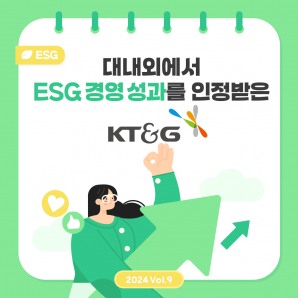![[ECM] SK On ∙ Lotte Chemical, Unstable PRS Contract… Concerns Over Increased Losses](https://cfnimage.commutil.kr/phpwas/restmb_allidxmake.php?pp=002&idx=3&simg=2024111412001606260141825007d12411124362.jpg&nmt=18)
According to the investment banking (IB) industry on the 13th, SK On secured a total of 1.5 trillion won in funds, including a paid-in capital increase of 1 trillion won last month and an additional 500 billion won recently.
Specifically, it is a PRS (pricing return swap) method. PRS is a structure in which a company transfers stocks it owns to investors who are counterparties and compensates for losses when the value falls. On the other hand, when asset value increases, investors transfer the increased value of the purchased stocks to the company (preserving the difference).
In simple terms, instead of selling shares, the company raises funds based on them. Investors give up profits but limit losses, and it is a type of derivative contract in which they receive fees or dividends.
Meanwhile, Lotte Chemical also signed a PRS contract worth 662.6 billion won by utilizing a 40% stake in its US corporation (Lotte Chemical Louisiana LLC).
SK On succeeded in turning a profit in the third quarter of this year, three years after its independent launch from SK Innovation in 2021. However, there is a high possibility of deficit again due to the one-time profit base effect. SK On has raised a total of 3 trillion won in funds from financial investors (FIs) since the spin-off. If SK On fails to reach an appropriate level of corporate value by 2026, its parent company SK Innovation will have to repurchase the stake held by FIs. Alternatively, FIs may exercise a drag-along right to sell SK On shares held by SK Innovation.
SK On can only escape the worst-case scenario if its growth leads to increased value and a successful initial public offering (IPO). In this process, since investment expansion is inevitable, funds are needed.
SK On's credit rating is A+, so if a large amount of funds are raised through debt, the burden of financing costs will increase. The corporate bond credit rating guaranteed by its parent company, SK Innovation, is AA0, but it is not enough to reduce the excessive debt burden. If SK On fails to IPO, etc., SK Innovation could also be hit.
In the current situation, it is most ideal for SK On to raise capital in the form of equity. However, due to the limitations of being an unlisted company, it is difficult to evaluate its fair value. However, from SK On’s perspective, it is believed that SK On's current valuation is undervalued due to its confidence in the growth of electric vehicles.
On the other hand, from the perspective of investors, the PRS contract reflects some doubts about SK On’s long-term financial stability and performance improvement.
However, the PRS arrangement is not without its share of investor negativity, as noted above. This could have a negative impact on the group as a whole if it is not supported by an industry conditions and improving performance.
An investment bank (IB) official said, "Both SK On and Lotte Chemical are raising funds to improve their financial structure," and "Dramatic restructuring of low-profitability sectors will be inevitable in the process." He added, "PRS is not a bad choice in a situation where capital procurement is difficult, but it could face greater difficulties if performance worsens and financial burden increases."
Lee Sungkyu (lsk0603@fntimes.com)






























![트럼프發 관세 파장…증권사들이 바라본 코스피 전망과 투자 전략은? [美 관세 쇼크]](https://cfnimage.commutil.kr/phpwas/restmb_setimgmake.php?pp=006&w=69&h=45&m=5&simg=2023122100270607026c1c16452b018222889185.jpg&nmt=18)
![박기호 LB인베 대표, '3조' 기업가치 에이블리·펀드 청산으로 영업이익 증가 [2024 VC 실적]](https://cfnimage.commutil.kr/phpwas/restmb_setimgmake.php?pp=006&w=69&h=45&m=5&simg=20250123191400059018a55064dd159679229.jpg&nmt=18)
![대통령 파면 소식에 외국인 1조7천억원 매도…삼전 2.6%↓·하이닉스 6%↓(종합) [尹 파면]](https://cfnimage.commutil.kr/phpwas/restmb_setimgmake.php?pp=006&w=69&h=45&m=5&simg=2025040411285401558e41d7fc6c2596154205.jpg&nmt=18)

!['尹 파면'에 롤러코스터 탄 코스피…"증시 불확실성 해소 국면 진입" [尹 파면]](https://cfnimage.commutil.kr/phpwas/restmb_setimgmake.php?pp=006&w=69&h=45&m=5&simg=2025040412325801343179ad439072112358872.jpg&nmt=18)



![美 증시, 트럼프표 '공격적' 관세에 패닉 셀…애플 '털썩' M7 주가 타격 [美 관세 쇼크]](https://cfnimage.commutil.kr/phpwas/restmb_setimgmake.php?pp=006&w=69&h=45&m=5&simg=20230803092941058129249a1ae63175114235199.jpg&nmt=18)












![[카드뉴스] KT&G ‘Global Jr. Committee’, 조직문화 혁신 방안 제언](https://cfnimage.commutil.kr/phpwas/restmb_setimgmake.php?pp=006&w=298&h=298&m=1&simg=202503261121571288de68fcbb3512411124362_0.png&nmt=18)


![[카드뉴스] 국립생태원과 함께 환경보호 활동 강화하는 KT&G](https://cfnimage.commutil.kr/phpwas/restmb_setimgmake.php?pp=006&w=298&h=298&m=1&simg=202403221529138957c1c16452b0175114235199_0.png&nmt=18)
![[카드뉴스] 신생아 특례 대출 조건, 한도, 금리, 신청방법 등 총정리...연 1%대, 최대 5억](https://cfnimage.commutil.kr/phpwas/restmb_setimgmake.php?pp=006&w=298&h=298&m=1&simg=20240131105228940de68fcbb35175114235199_0.jpg&nmt=18)
![[신간] 리빌딩 코리아 - 피크 코리아 극복을 위한 생산성 주도 성장 전략](https://cfnimage.commutil.kr/phpwas/restmb_setimgmake.php?pp=006&w=81&h=123&m=5&simg=2025032814555807705f8caa4a5ce12411124362.jpg&nmt=18)
![[신간] 지속 가능 경영, 보고와 검증](https://cfnimage.commutil.kr/phpwas/restmb_setimgmake.php?pp=006&w=81&h=123&m=5&simg=2025011710043006774f8caa4a5ce12411124362.jpg&nmt=18)
![[서평] 추세 매매의 대가들...추세추종 투자전략의 대가 14인 인터뷰](https://cfnimage.commutil.kr/phpwas/restmb_setimgmake.php?pp=006&w=81&h=123&m=5&simg=2023102410444004986c1c16452b0175114235199.jpg&nmt=18)

![[신간] 똑똑한 금융생활...건전한 투자와 건강한 재무설계 지침서](https://cfnimage.commutil.kr/phpwas/restmb_setimgmake.php?pp=006&w=81&h=123&m=5&simg=2025031015443705043c1c16452b012411124362.jpg&nmt=18)

![[카드뉴스] KT&G ‘Global Jr. Committee’, 조직문화 혁신 방안 제언](https://cfnimage.commutil.kr/phpwas/restmb_setimgmake.php?pp=006&w=89&h=45&m=1&simg=202503261121571288de68fcbb3512411124362_0.png&nmt=18)
![[AD] 기아, 혁신적 콤팩트 SUV ‘시로스’ 세계 최초 공개](https://cfnimage.commutil.kr/phpwas/restmb_setimgmake.php?pp=006&w=89&h=45&m=1&simg=2024123113461807771f9c516e42f12411124362.jpg&nmt=18)
![[AD] 아이오닉5 '최고 고도차 주행 전기차' 기네스북 올랐다...압도적 전기차 입증](https://cfnimage.commutil.kr/phpwas/restmb_setimgmake.php?pp=006&w=89&h=45&m=1&simg=2024123113204707739f9c516e42f12411124362.jpg&nmt=18)




